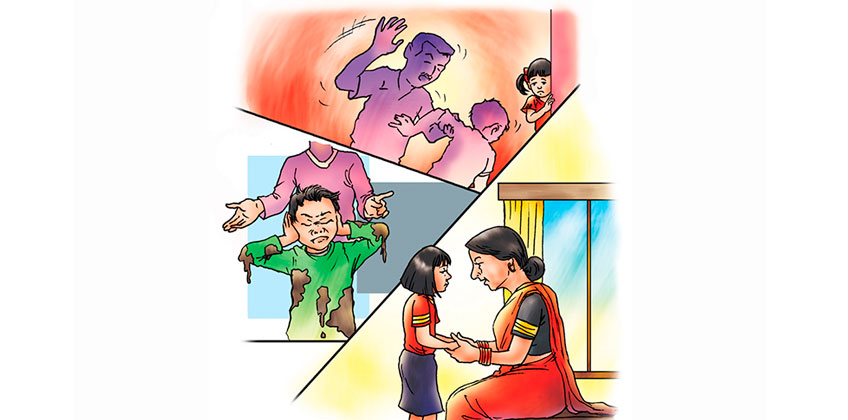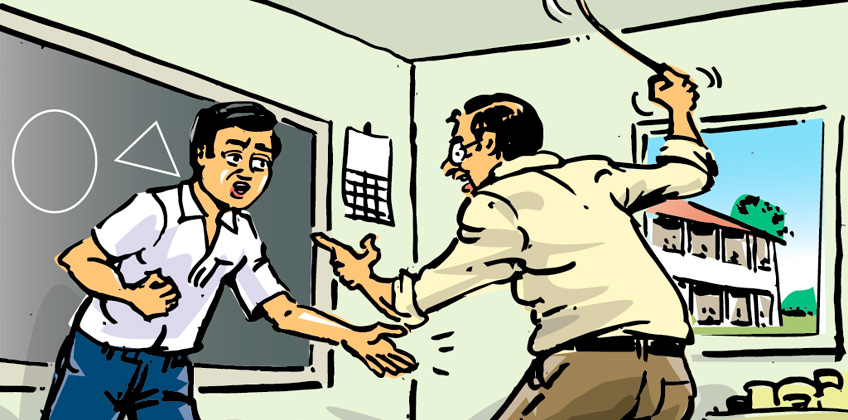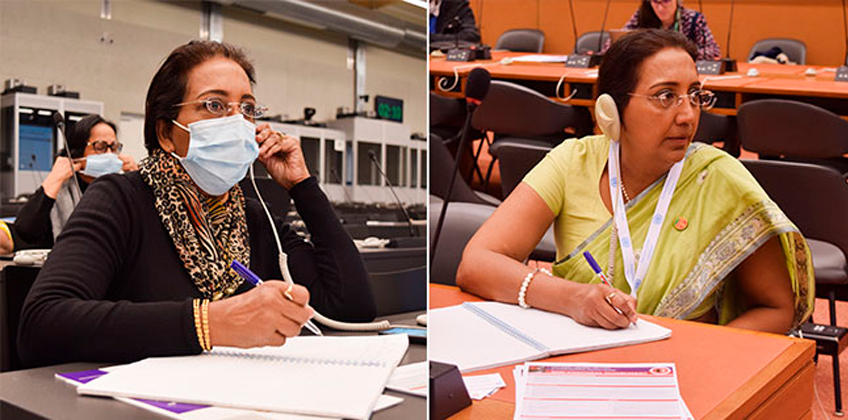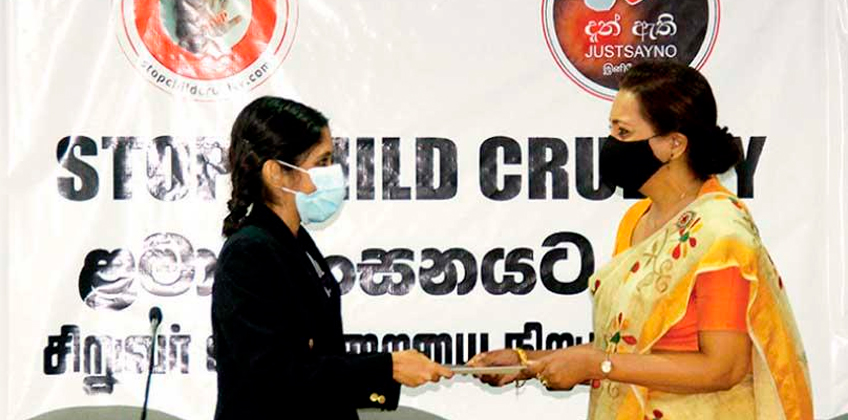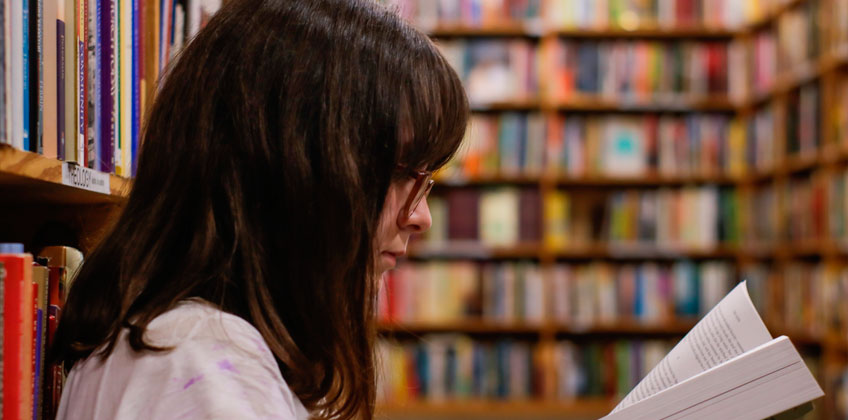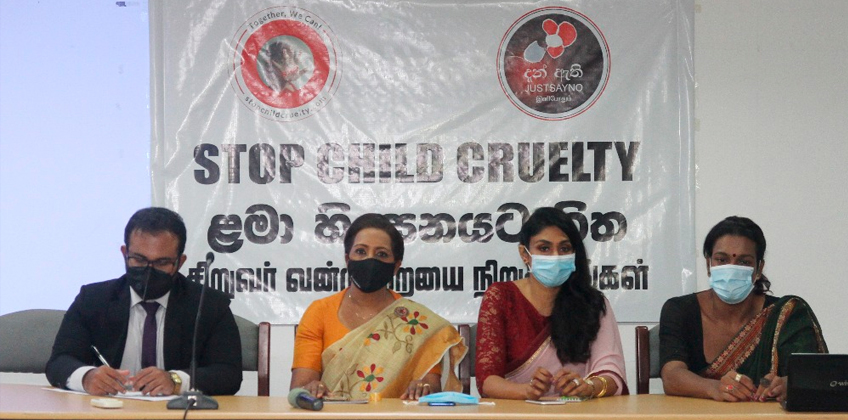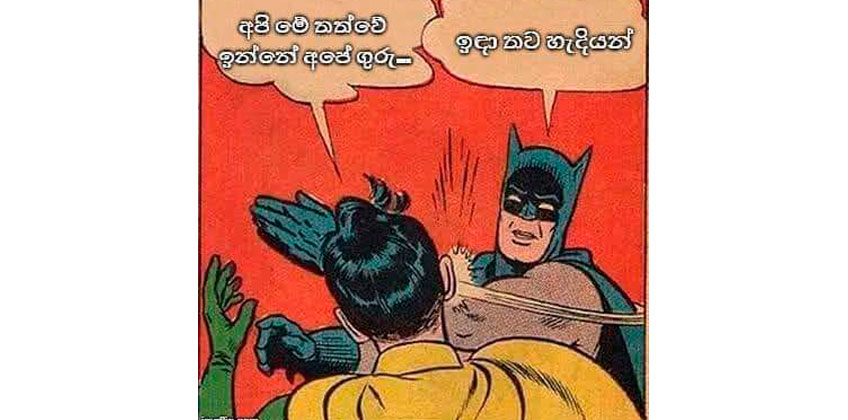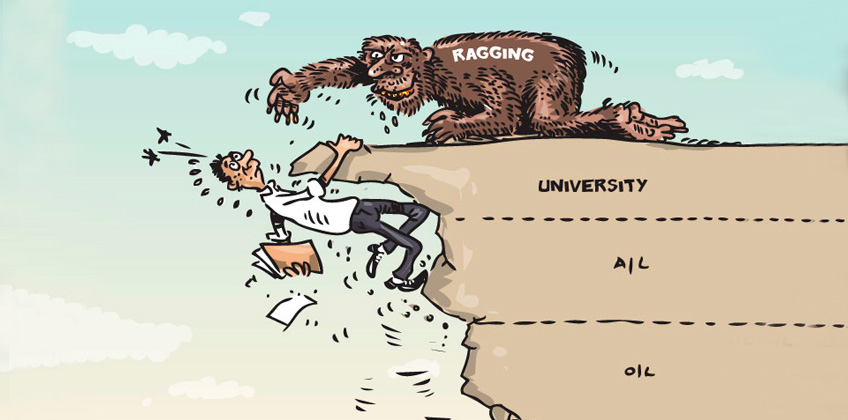
 By Raj Gonsalkorale –
By Raj Gonsalkorale –
An enlightened society would look at corporal punishment in schools from a wider perspective than the convenience of thinking an errant child needs a spanking to discipline him or her. There can be and have been from time immemorial, arguments that some children, at some point or another, needs corporal punishment to discipline them. Unfortunately for the proponents of this argument, there is no scientific evidence that corporal punishment per se has had any positive effect on child discipline, although some child psychologists may contend that measured, structured and “disciplined” inflictment of corporal punishment could have a positive effect on some children.
On the contrary, there is ample scientific evidence of negative behavioural issues pertaining to children who have been subject to corporal punishment, and even more tellingly, the likelihood of lasting effects when such children grow into adulthood.
Around the world, close to 300 million children 2 to 4 receive some type of physical discipline from their parents or caregivers on a regular basis, according to a 2017 UNICEF report.
Globally, about 1.1 billion caregivers view physical punishment as necessary to properly raise or educate a child, according to UNICEF data.
Yet an increasing amount of research shows that the end results of corporal punishment may not be positive.
Studies have shown that corporal punishment contributed to aggression, mental health and social esteem problems and antisocial behavior in children, which is carried into adulthood.
Other studies have found children who are corporally punished also experience academic problems in schools and cognitive deficits and were more likely to be violent towards women later in life.
As these these studies indicate, Paediatrician Dr. Robert Sege, Professor of medicine at Tufts University School of Medicine has mentioned that “when parents and schools model violence, it tends to increase the willingness of children to fight, to get physically violent themselves.”
While analysis of child behavioural patterns is within the province of child psychologists and other experts, from a layman’s point of view one could say that legitimised child punishment in schools, which is what corporal punishment is, could instil a sense legitimacy in a child that punishing another individual is an acceptable disciplinary act.
The chances of a child knowing what is legal and illegal is less likely and they could be framing their instincts that what a superior person like a teacher does, is the right thing however painful and cathartic that might be for the receiver of such punishment.
In adulthood, if they develop such a sense of superiority, the right that they sense they have as a superior could very well lead them to be violent against other individuals.
Corporal punishment a child received during their school time may not be the only reason why they practice violence in their youth and why they become the despicable raggers in Universities and why they lower themselves to domestic violence. It is an undeniable fact however that ragging and domestic violence is a gender based phenomenon, practiced by males on females.
In an article written by Natasha Fernando for the UNDP in December 2016 titled “Ragging in Sri Lankan Universities- affects Quality of education? Encourages Gender-based Violence?”, she says “Ragging in Sri Lankan Universities is the worst experience that a student can have. Ragging is a form of systematic abuse and also a form of gender based violence”
Besides the reality of mental, and physical abuse including sexual violence and rape, ragging no doubt is an inhuman practice that blackens the future generations of the country.
Ragging must come from somewhere and must be a characteristic that is latent in some youth until they have the opportunity to unleash what has been latent. This hidden psyche could very well have been germinated in the mind of a child who had been subject to violence as a child, especially legal violence in the form of corporal punishment in schools, and no doubt, in environments of violence in their homes.
The Minister of Higher Education, Mr Wijeyadasa Rajapakshe rightly linked legal child abuse in schools to the violence of ragging in Universities when he spoke on behalf of His Excellency the President and the Government of Sri Lanka during the event organised by the “Stop Corporal Punishment in Schools by 2020” campaign at the Independence Square on the 30th of September 2018. Mr Rajapakshe cited alarming statistics of the such violence in Universities in Sri Lanka including the suicide of some 20 new university entrants, the dropping out of several entrants and the physical violence incidents running into hundreds. He said the mental impact and anguish suffered by hundreds of others was incalculable as there were no formal mechanisms in place to assess such cases.
Natasha Fernando also points out another interesting phenomenon, and this is about how ragging impacts on the quality of education.
She points out that students who are involved in ragging as both perpetrators and victims are disrupted from attending lectures. There are students who get selected to universities but drop out due to ragging. Some students join private universities or go abroad and excel in their studies causing a huge brain drain. The quality of education has degenerated so badly that not attending lectures but doing extra-curricular activities, professional networking and self-studying by finding their own material has become the contemporary experience for some.
In an article by Sandee LaMotte, CNN (15th October 2018) she points out that banning spanking and other corporal punishment is tied to less youth violence. CNN points out that youth around the world are less violent where corporal punishment is banned, according to an analysis of data from 88 countries, territories and protectorate states published in the British Medical Journal. “Societies that have these bans in place appear to be safer places for kids to grow up in,” said lead study author Frank Elgar, an associate professor in the Institute for Health and Social Policy at McGill University in Montreal.
About half of world’s teens experience peer violence in and around school, UNICEF says. Elgar and his team ended up with over 400,000 adolescent answers from a diverse mix of 88 counties that had full, partial or no bans on spanking or other forms of corporal punishment. Of the 88 countries in the study, 30 had full bans on corporal punishment, meaning it is banned in both schools and homes. Those countries include New Zealand, Iceland, Portugal, Spain and a number of Scandinavian and Central and South American nations.
Thirty-eight countries, including the United States, the UK and Canada, had partial bans, in which such punishment is prohibited only in schools. The remaining 20, which include Israel, Egypt and a number of African countries, had no ban in place at the time of the study. The lowest rates of violence were found in Costa Rica, Portugal, Finland, Honduras, Spain, New Zealand and Sweden, in that order.
The campaign launched on the 30th September in Sri Lanka to ban and enforce the ban on corporal punishment in schools is not just about this. While it is certainly a measure to protect vulnerable children who have no means of defence, it is a vision that looks at banning corporal punishment from a wider perspective such as the effects that flow on when children who have been subjected to such punishment, often physically and mentally very harmful, becomes the youth and thereafter the adults of the country.
If violence in the society could be lessened by treating the children in the society humanely and with kindness and love, instead of violence and abuse, the cycle of violence could be avoided as children who grow into adulthood in such a society would have children of their own who could grow up in a less violent society.
The Stop Corporal Punishment by 2020 campaign is also about looking at the challenges faced by teachers. Class room sizes, lack of appropriate training, frustration arising from poor salaries, political interference and the high handed approach of some school principals and law enforcement officials, indifference of education administrators are some of the reasons attributable to teacher behaviour, and the campaign has plans to raise public awareness on these and other challenges faced by teachers. However, the campaign believes that solutions to these challenges require long term measures, and requires the commitment of the political establishment of the country to address the issues and find solutions.
Meanwhile, the campaign believes that the vulnerable children must be protected and the ambiguities in the law of the land needs to be addressed with regard to the ban on corporal punishment in schools and measures put in place to enforce the ban.


